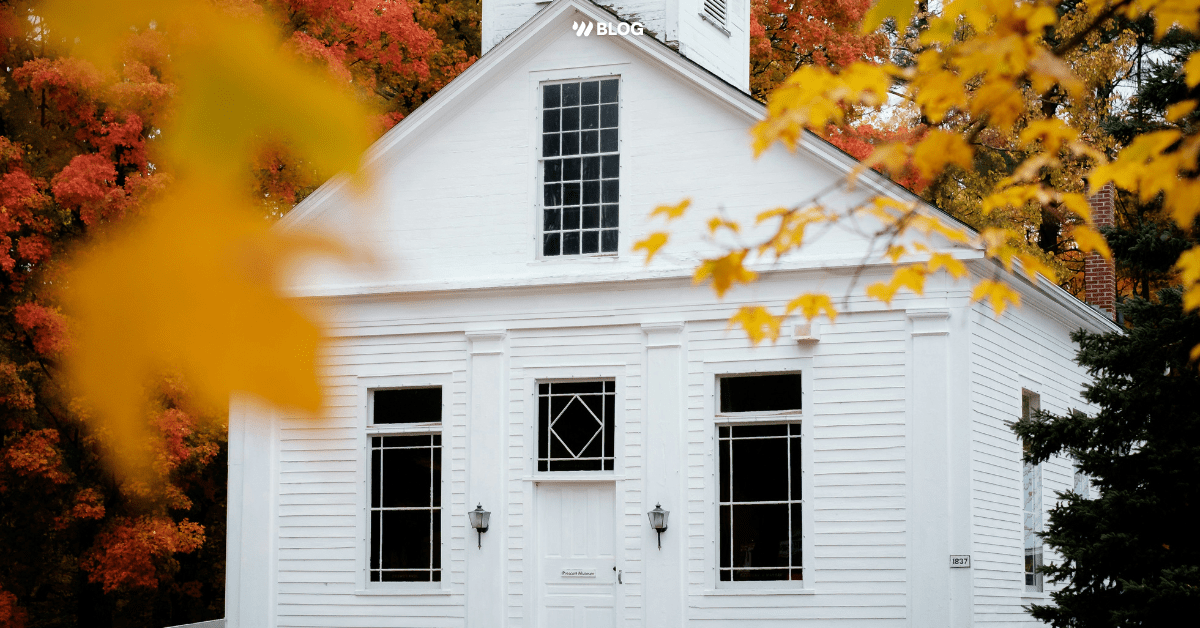Contemporary worship as we know it is a fairly new phenomena.
Worshiping with song has been part of Christian worship from the beginning, but the current shape – a collection of songs strung together at the onset of the liturgy – is new. Even so, “contemporary worship” has continued to evolve over the ~60ish years since its inauguration into its present form.
An even more recent evolution is what we’ve come to know as “spontaneous worship”
This could be described as flowing into an unplanned song or progression for an undetermined amount of time with or without lyrics.
Within Pentecostal and charismatic circles worship has always involved spontaneity.
Going all the way back to the Azusa St. Revival, which began in 1906 and is often regarded as the birthplace event of “Pentecostalism,” spontaneity was a distinguishing mark of their worship.
Though spontaneity was practiced more broadly – often occurring during testimonies, prayer, or congregational participation with the gifts of the Spirit – it was a way of embodying openness to the Spirit; a way of recognizing that God’s Spirit is active and at work among God’s people in the present moment!
Fast forward one-hundred or so years and “spontaneity” is once again a large part of the liturgical conversation, though with a different texture now.
I think there is a convincing biblical case to be made for spontaneity in worship.
The most obvious one is on the day of Pentecost recorded in Acts 2. The believers are gathered praying in faithful obedience to Jesus and BOOM the Holy Spirit breaks in and is present in wind, tongues of fire, and through the speaking in other tongues. Yes, this particular instance is “one of a kind,” but it undoubtedly testifies to the spontaneous nature of God’s Spirit.
Then there are the four friends in Mark 2
These guys bring their paralyzed friend and begin to dig through the roof and lower him right in front of Jesus as he’s teaching. Visualize it! Jesus is teaching and there’s commotion above for what, 4 or 5 minutes as they dig and tear through the roof? Jesus’ response is not rebuke, but – in awe of their faith – to forgive his sins, and to heal his body!
This is an odd story that has little to do with flowing extemporaneously in the middle of a song set, admittedly. But what these stories tell us is that God is okay with our human interruptions and also withholds the right to surprise us at any turn – even in the midst of our carefully prepared services.
Some of you are begging that the counterpoint also be emphasized: God is particular about the way his people worship. True!
Not because he’s petty or legalistic, but because how we worship will inform who we think God is and what we expect of him. We are formed in and through our worship. How we do it and the content of our worship are of utmost importance.
Most of Leviticus is a prescription for worship and sacrifice. And 1 Corinthians 11, 12, and 14 provide directives for “orderly worship,” as Paul is correcting what seems to be liturgy gone haywire.
But I believe these should be held in tension, or layered on top of one another.
Worship should be carefully prepared, but also not rigid, including space for spontaneous outbursts of gratitude and praise or the immanent manifestation of the Spirit!
My experience with spontaneous worship is that it most often functions as a way of creating space for present and anticipated interruptions by the Holy Spirit.
Sometimes it’s an expression of our corporate response to God that is initiated by the worship leader; the culmination of being overcome with the goodness of God when the only suitable response is to intimate gratitude and love in one’s own words in the moment. Like the sweet words shared between husband and wife after reading the written anniversary cards.
Other times spontaneous worship is a way of facilitating an extended leisurely time in God’s presence when it seems He is moving on the congregation and the prepared set isn’t long enough; it’s a “holy time filler.”. Other times spontaneity in worship seems to be more of a prophetic in-breaking where the worship leader senses that God is responding to the prayers and worship of his people with a specific word that requires going off-script to impart.
So if you’re going to lead your worship team and congregation into times of spontaneous worship here are a few “do’s” and “don’t” that I’ve learned along the way.
1. DO talk about it with your team (and your senior pastor).
If this is a new thing or a regular Sunday morning occurrence, you need to talk with your team about your desires and intentions for that space. What is that lingering space for? How can they participate and facilitate those moments in the best way possible?
Teach them.
Give them guidance and space to be skeptical or ask questions. Don’t just assume that they know *why* you tend to go off script at the end of the second slow song or move into a praise break following every song over 120bpm. If you assume they understand and don’t talk openly with them you are leaving it to chance that they will hit the mark.
It’s risky to go off script and requires an immense amount of trust all around: from your pastor to you, between you and your team (production included!), and from the congregation to you and your team. Steward that trust well by acknowledging the risk and talking about it clearly as you can. It’s a risky endeavor, but it’s a risk worth taking.
2. DO prepare for spontaneous moments.
It sounds ironic to suggest preparing for moments of spontaneity, but it’s not! Consider the Father in the parable who sees his prodigal son returning off in the distance; there’s no way to emulate that moment beyond rehearsing what it *might* be like in his mind.
But in true moments of spontaneity what’s inside will inevitably come out.
If the Father had bitterness and hatred toward his son it would’ve come out. What came out of the Father was unrehearsed and unfiltered in the emotion of the moment and it was beautifully redemptive. The principle is that if we want authentic spontaneity we have to be ready for what’s inside to come out. Prepare your heart and mind in secret.
One way to prepare is by doing it on your own – just you and God – in a space where you won’t be self-conscious being your truest self before him.
Play a simple 4-chord progression and sing whatever is in your heart or mind. This will help you get used to singing a coherent phrase to a progression and a cadence on the fly. It also can help you be attuned to what’s actually going on inside of yourself.
You can also prepare by ensuring that you have substantive content flowing into you.
There’s nothing wrong with singing, “I love you Lord, you’re good, you’re good” over and over again, but cultivate a desire for there to be more substantive and descriptive expressions of God’s goodness waiting to be released. There are a number of ways to seed that field: read the Psalms in a different translation from what’s typical for you; read a book of rich theology or contemplative spirituality; read poetry; saturate yourself in music that is artistically beautiful even if it’s not “Sunday morning appropriate.”
All of these things will nourish your soul and give your mind fresh words and melodies to express what you’re sensing when those moments are impressed upon you on a Sunday morning.
3. DON’T abandon thoughtful planning.
As I mentioned earlier, one of the things that made the Azusa St. Revival a revival was the undeniable in-breaking of the Spirit that was often spontaneous. But it flowed out of their intentional hospitality and mutuality toward one another, and their openness to the Spirit. Their values were loving God and loving neighbor, not loving spontaneity.
What’s often forgotten (and to most it’s simply unknown) was that their services did have a regular liturgy that involved singing, testimonies, prayers, baptism, and Holy Communion.
Their leaders spent hours in deep study and prayer daily. There were many documented services where their liturgy was interrupted by an apparent move of God, but being spontaneous was not the goal: making space for and tending to the work of God among them was.
Paul encourages hymns and spiritual songs because he knows we need both for true enlivened worship.
It is a mistake to abandon predictable hymns for the spontaneous spiritual song. In your planning make space for holy interruptions, but do not forsake good and thoughtful planning.
4. DON’T assume being spontaneous is inherently or makes you more spiritual or prophetic.
This is a real temptation when you have experienced God moving powerfully in spontaneous moments of worship!
And when you view the spontaneous as superior it’s easy to develop a sense of pride or identity around being the person known for facilitating powerful “spontaneous moments.”
The reward of seeing something unplanned materialize into something powerful is quite an honor. I’ve been in services when what’s planned feels hum-drum, and there’s a temptation to do something off-script for the sake of the exhilaration that accompanies it. But that doesn’t mean that God wasn’t also at work in the hum-drum and that he will be behind our spontaneity.
God is at work in the hum-drum of our lives all the time. Can we be confident in that?
Can we learn to be comfortable with the hum-drum, resisting the urge to be spontaneous for novelty or the thrill of it? There’s a convincing argument to be made that life in God was designed to be mostly hum-drum. Our immaturity wants to pursue more and more of those moments of spontaneity when what we should be pursuing is God himself – both in the hum-drum and in the unprompted.
And for those who are risk-averse and prefer staying on script, are you willing to take the risk when you sense the Spirit inviting you to?
Will you allow your well-crafted set to be interrupted so that the Spirit might do something special and unique in the moment? The work of God will often challenge us to trust him more deeply. Making space for the in-breaking of the Spirit by preparing and hoping for spontaneous moments in worship is beautiful and worthwhile.
But remember that God is also at work when we’re singing good doctrine and that tired song from 2015 that really ministers to half the congregation. God is patient with us, let’s be patient with his work as we look for his in-breaking among us.
As worship leaders our goal is to guide people into encounters with the living God where we are formed and prepared for mission together.
Like the disciples on the road to Emmaus, God is more present to us than we can imagine, even when we’re convinced he’s not. And also like those disciples, one day our eyes will be opened and we will be surprised – awed – to see that he was at work in far more than we knew was possible.
You may also be interested in these related posts!
- The Secret to Using Tracks in Spontaneous Worship with Matt from Loop Community
- The Practicals of Spontaneous Worship with Red Rocks Worship
- Episode 92 • The Dos and Don’ts of Prophetic Worship with Emmy Rose (Bethel Music)
- Episode 95 • Bringing Heaven to Earth Through Worship with Josh Kluge
- Should We Sing Songs that We Know aren’t *Technically* True?
- 5 Things Volunteers Do that Annoy their Worship Pastors More than Anything


![Top Christmas Worship Songs 2025 [With Tutorials]](https://worshiponline.com/wp-content/uploads/2024/12/Post-Graphic-no-title-only-watermark-1-1.png)



![Top Christmas Worship Songs 2025 [With Tutorials]](https://worshiponline.com/wp-content/uploads/2024/12/Post-Graphic-no-title-only-watermark-1-1-1024x536.png)